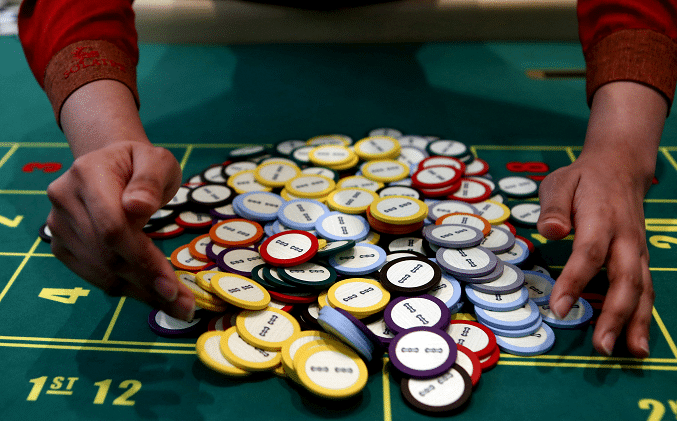Philippine Offshore Gaming Operator News: The Latest Updates and Insights in 2025

The philippine offshore gaming operator news industry has become one of the fastest-growing sectors in the Philippines. The development of this industry has attracted attention from governments, investors, and stakeholders globally. With a significant contribution to the country’s economy, the Philippine Offshore Gaming Operators have been making waves in the international market.
In this article, we will provide a comprehensive overview of the Philippine Offshore Gaming Operators, highlighting the current news, trends, challenges, regulations, and potential opportunities for businesses involved in this space. We will also provide key insights and useful information for anyone looking to understand this industry better.
- Also Read: Sgloballive com
What is a Philippine Offshore Gaming Operator (POGO)?
A philippine offshore gaming operator news is a licensed company or entity in the Philippines that operates online gaming services targeting players outside the country. These gaming operators offer various services, including sports betting, online casino games, and poker, and cater to players in different parts of the world, particularly in China and other parts of Asia.
Key Characteristics of POGOs
Offshore Focus: POGOs are allowed to operate in the Philippines, but their target market is typically international, especially in jurisdictions where online gambling is popular.
Licensing: The Philippine Amusement and Gaming Corporation (PAGCOR) is the government agency that issues licenses for POGOs, ensuring they operate legally within the country.
Economic Impact: POGOs contribute significantly to the Philippine economy through taxes, foreign investments, and job creation.
The Growth of POGOs in the Philippines
The POGO industry has experienced exponential growth over the last few years. This growth can be attributed to several factors:
Government Support: The Philippine government has actively supported the expansion of online gambling, making the country an attractive destination for international operators.
Increasing Demand for Online Gambling: With the growth of internet access and digital technology, online gambling has become a booming industry globally, particularly in Asia.
Regulated Environment: The government ensures that the POGO sector is well-regulated, providing a safer and more trustworthy environment for operators and players.
- Also Read: The Meia Cassandra Scandal
POGO’s Economic Contribtion
The Philippine government has benefited greatly from the rise of the POGO industry. With the issuance of POGO licenses, the government has generated significant revenue from licensing fees and taxes. The sector has also created thousands of jobs, both directly and indirectly, through various supporting services such as call centers, IT support, and hospitality.
According to PAGCOR, the government earns billions of pesos annually from POGO operations. The industry has also contributed to the growth of infrastructure, particularly in Metro Manila and surrounding areas, where many POGOs are based.
Regulatory Landscape for POGOs
While the POGO sector has flourished, it has also faced regulatory challenges. In recent years, both the Philippine government and international authorities have implemented tighter regulations to ensure that operators comply with local laws and international standards.
Key Regulations for POGOs
Licensing by PAGCOR: To operate legally in the Philippines, a POGO must obtain a license from PAGCOR. These licenses are renewable and come with various conditions to ensure compliance.
Taxation Policies: POGOs are required to pay taxes to the Philippine government. These taxes are collected based on the revenue generated by the operators, and failure to pay taxes could lead to penalties or revocation of licenses.
Employment Regulations: POGOs are also required to adhere to local labor laws, including offering benefits and protection to their employees. Foreign workers are allowed to be employed by POGOs, but their presence must comply with immigration rules.
Anti-Money Laundering (AML) Compliance: POGOs must comply with strict AML regulations to prevent illegal activities such as money laundering and gambling fraud.
New Regulatory Updates in 2025
In 2025, several changes have been introduced to enhance the regulatory environment for POGOs. These updates aim to ensure transparency, reduce illegal activities, and improve the overall integrity of the industry.
1. Stricter Licensing Procedures
The Philippine government has introduced more rigorous licensing procedures for POGOs to combat illegal operators. This includes more extensive background checks on owners and operators.
2. Increased Taxation
The philippine offshore gaming operator news government has raised the tax rates for POGOs, further ensuring that these operators contribute to the national economy. These tax adjustments have been made in response to the increasing revenues generated by the sector.
3. Stronger Labor Protections
There has been a significant focus on enhancing labor rights for workers employed by POGOs. This includes ensuring fair wages, proper working conditions, and opportunities for workers to report grievances without fear of retaliation.
Trends in the Philippine Offshore Gaming Industry

The POGO industry continues to evolve, and several trends are shaping its future. Let’s explore some of the most prominent trends in 2025.
1. Increased Interest from International Operators
POGOs are seeing more international gaming companies seeking licenses in the Philippines. The country’s favorable tax rates, skilled workforce, and regulatory environment make it an attractive option for foreign operators.
2. Technological Advancements in Online Gambling
As technology continues to advance, POGOs are integrating more innovative features into their platforms. From virtual reality casinos to live dealer games, online gaming is becoming more immersive and interactive for players.
3. Diversification of Offerings
POGOs are diversifying their service offerings to attract a broader range of international players. This includes the introduction of new types of online games, such as esports betting and mobile gaming platforms.
4. Focus on Responsible Gambling
There is an increased focus on responsible gambling within the POGO industry. Operators are implementing measures to protect players, such as self-exclusion tools, age verification processes, and responsible gambling education.
5. Rise in Cybersecurity Concerns
As the online gambling industry grows, cybersecurity becomes a critical concern. POGOs are investing heavily in technology to protect their platforms from cyberattacks and ensure the safety of their players’ data.
Challenges Facing Philippine Offshore Gaming Operators
Despite its success, the POGO industry faces several challenges that could hinder its long-term growth. Let’s take a look at the main challenges:
1. Regulatory Uncertainty
While the Philippine government has been supportive of the POGO industry, sudden regulatory changes can pose a threat to operators. Constant changes in tax rates, licensing procedures, and other regulations may create uncertainty for operators.
2. Competition from Other Countries
Other countries in Asia, such as Cambodia, Vietnam, and Malaysia, are also vying for a share of the offshore gaming market. The competition could limit the growth potential of the Philippine industry.
3. Reputation Issues
The POGO industry has faced negative publicity due to reports of illegal activities such as human trafficking and illegal gambling operations. These issues can tarnish the reputation of the industry and lead to greater scrutiny from authorities.
Future Outlook for POGOs
Looking ahead, the future of POGOs in the Philippines looks promising. The industry is poised for further growth, especially with technological advancements, new international partnerships, and a more robust regulatory framework.
However, the sector must continue to evolve by embracing responsible gaming practices, addressing labor issues, and investing in technology to stay competitive in the global market.
Frequently Asked Questions (FAQs)
What is a Philippine Offshore Gaming Operator (POGO)?
A Philippine Offshore Gaming Operator (POGO) is a company licensed by the Philippine government to offer online gambling services to international players.
How do POGOs contribute to the Philippine economy?
POGOs contribute to the Philippine economy through taxes, foreign investments, job creation, and infrastructure development.
Who regulates POGOs in the Philippines?
The Philippine Amusement and Gaming Corporation (PAGCOR) regulates POGOs, ensuring they comply with the country’s laws and regulations.
What are the latest updates in POGO regulations?
In 2025, POGO regulations have become stricter, with more rigorous licensing procedures, increased tax rates, and stronger labor protections.
Are there challenges facing the POGO industry?
Yes, the industry faces challenges such as regulatory uncertainty, competition from other countries, and reputation issues.




